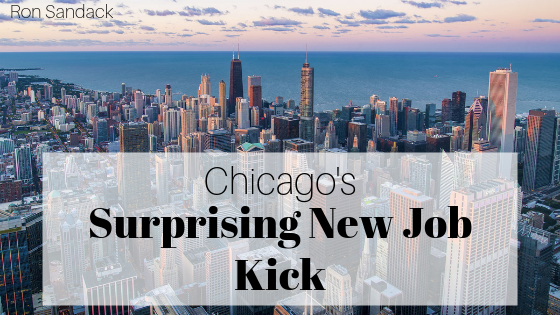For years, Chicago has been known to lag behind most other metropolitan cities in the U.S. when it comes to a number of economic trends. It has become customary for Illinoisans to expect our state to enter the race late when it comes to markets like housing and employment. However, economists and citizens have been surprisingly pleased lately with the newest data to come out stating that Chicago is actually leading the race in employment growth. The recent spike in downtown job opportunities could bring with it positive consequences for both city-dwellers and suburban commuters.
From June 2018 to June 2019, the entire state of Illinois has seen a growth of about 100,000 jobs according to the U.S. Bureau of Labor Statistics data. For the state overall, these numbers are shocking and the best that we have seen in recent years. A large number of this data is attributed to Chicago’s growing metropolitan job market, which held a growth rate of 1.8% or about 90,000 jobs. The national growth during this past year was 1.5%, putting Chicago above the average.
In fact, in just the first half of this year alone, Chicago added over 160,000 jobs, coming in second in the nation, right behind New York City’s 350,000 added jobs. This comes as no surprise as New York City has almost 70 square miles and close to 3 times the population of Chicago. However, although New York added more jobs overall, the job growth year-to-year came in at 1.2%, less than Chicago’s jump to 1.8%.
Now the question on our minds is what does this mean for Illinoisans, and how long will this lead last? In typical Chicago fashion, many economists are predicting that the slight rise in jobs will not have any direct result on Chicago’s metropolitan growth. However, growing the job market in Chicago’s metro hub could bring with it positive advantages to those living in the city and outside of it in the suburbs. This increases job opportunities for citizens in and around Chicago, which has effects of its own. Increased use of public transportation, elevated congestion on highways, and a healthier business market are just a few of the side effects of the increased job a market in metropolitan Chicago.
Overall, it will be wise for economists to continue to analyze this data over the remainder of the fiscal year. As it is not unusual for Chicago to lag behind the national average in many economic cycles, it may be too soon to tell what effect this uptick will have overall on the city and Illinois.

